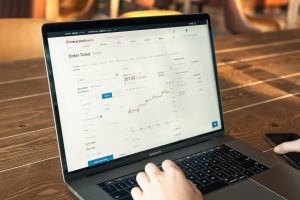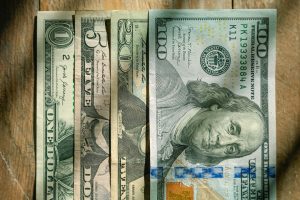Forex stands for foreign exchange, which refers to the process of exchanging one currency for another. Forex trading is a highly volatile and complex market that is subject to manipulation by banks. Banks are the most significant players in the forex market, and they have the power to manipulate it to their advantage. In this article, we will discuss how banks manipulate forex and its impact on traders.
What is forex manipulation?
Forex manipulation refers to the activities of banks that distort the forex market’s natural supply and demand forces to benefit themselves. Banks can manipulate the forex market through a variety of tactics, including front running, spoofing, and fixing.
Front running
Front running is a practice where a bank uses its knowledge of a large order to trade in advance of that order to profit from the upcoming price movement. For example, if a bank knows that a customer is going to buy a large amount of a particular currency, it can buy the currency before the customer, causing the price to rise. The bank can then sell the currency to the customer at a higher price, earning a profit.
Spoofing
Spoofing is a technique where a bank places a large order for a currency with no intention of executing the order. The bank then cancels the order once the price moves in its desired direction, fooling other traders into believing that there is significant demand for the currency. This can cause other traders to buy the currency, causing the price to rise, allowing the bank to sell its currency at a higher price.
Fixing
Fixing is a practice where banks collude to manipulate the forex market’s benchmark rates. The benchmark rate is the rate at which banks exchange currencies with each other. Banks can manipulate the benchmark rate by either colluding to buy or sell the currency at a specific time to influence the market’s price or by submitting false information to the benchmark rate calculation.
Impact on traders
Forex manipulation can have a significant impact on traders. Traders rely on the forex market’s natural supply and demand forces to make informed trading decisions. When banks manipulate the market, these forces are distorted, making it challenging for traders to make accurate predictions.
Traders may also suffer financial losses as a result of forex manipulation. For example, if a trader buys a currency at an inflated price due to front running, they may not be able to sell the currency at a profit, resulting in a loss.
Regulatory response
Regulators around the world have taken steps to combat forex manipulation. In 2014, regulators in the US, UK, and Switzerland fined six banks a total of $4.3 billion for manipulating the forex market. Since then, regulators have increased their oversight of the forex market, requiring banks to implement stricter controls and procedures to prevent market manipulation.
Conclusion
Forex manipulation is a significant problem in the forex market, and banks are the primary culprits. Banks can manipulate the forex market through tactics such as front running, spoofing, and fixing, causing distortions in the market’s natural supply and demand forces. This can have a significant impact on traders, who may suffer financial losses as a result. Regulators have taken steps to combat forex manipulation, but it remains a challenge in the forex market. As a trader, it is essential to be aware of forex manipulation and take steps to protect yourself from its impact.






